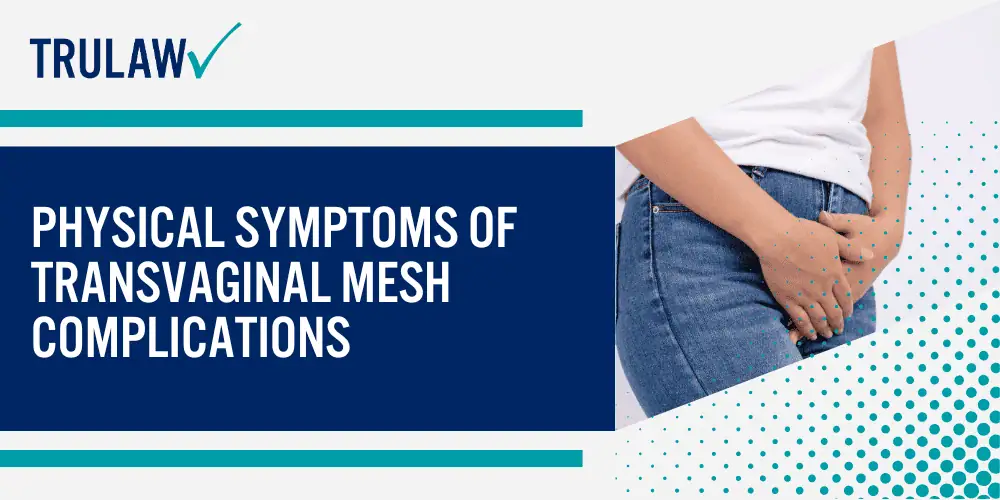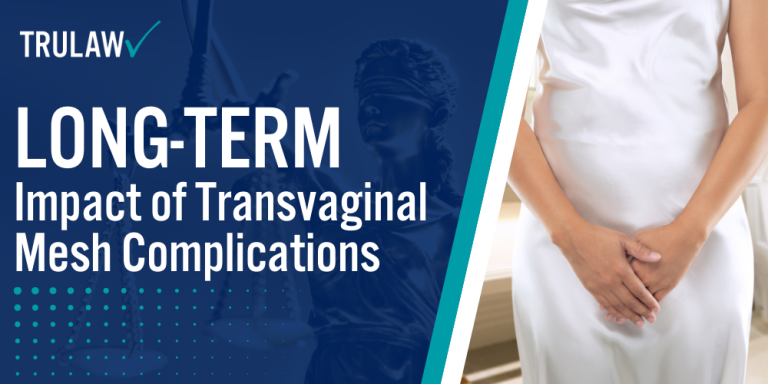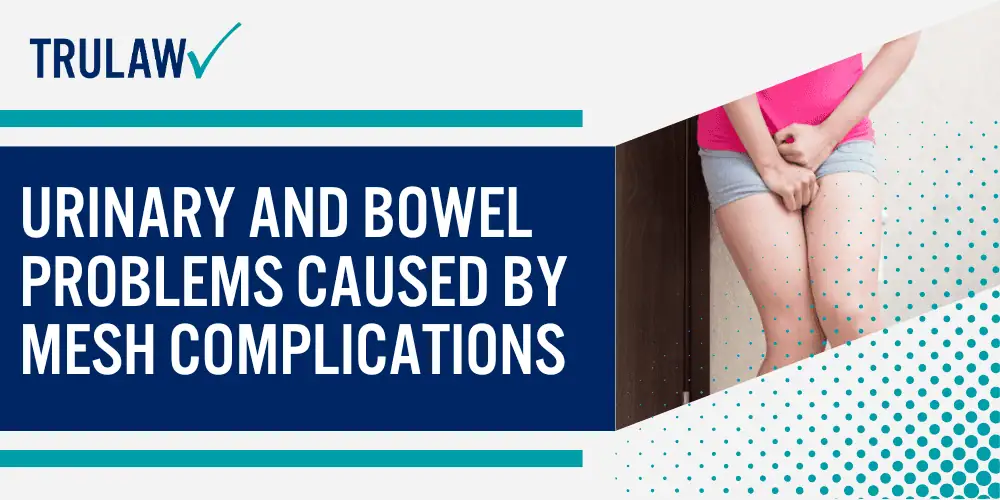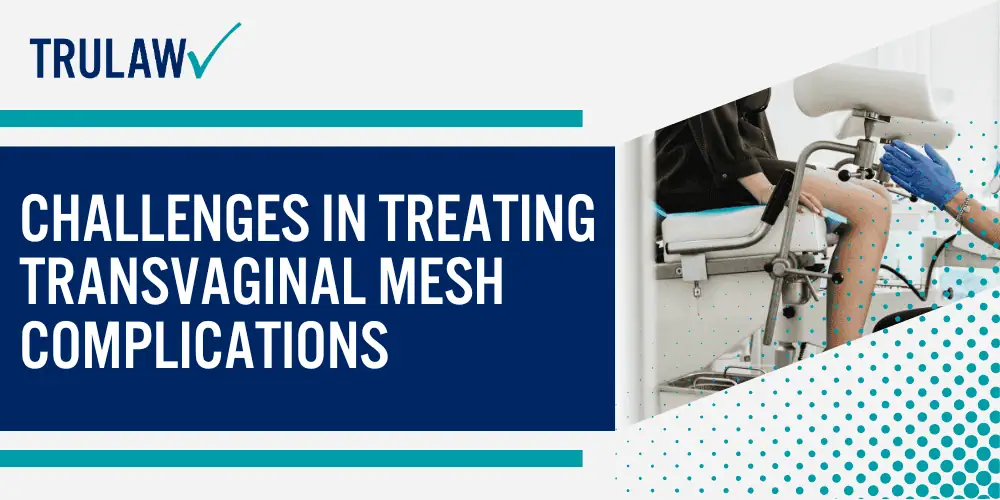Transvaginal mesh complications can manifest through various physical symptoms, affecting a patient’s quality of life.

These issues often present as different types of pelvic pain and urinary incontinence, reflecting the severity of the condition.
Pain and Discomfort in the Pelvic Region
Patients may experience chronic pelvic pain following transvaginal mesh surgery, which could be indicative of complications.
This discomfort can vary in intensity and may be associated with certain activities or periods of rest.
The following are some of the symptoms of chronic pelvic pain that may occur after transvaginal mesh surgery:
- Occasional sharp pains or a steady dull ache in the pelvic area.
- Pain during intercourse leads to a decrease in sexual activity due to discomfort.
- A sense of pressure or heaviness within the pelvic region.
- Exacerbation of pain when sitting or standing for long periods.
Irregular Vaginal Bleeding or Discharge
An unexpected symptom that could signal a problem is the occurrence of irregular vaginal bleeding or discharge after the placement of transvaginal mesh.
The following are some types of irregular vaginal bleeding or discharge that may occur after transvaginal mesh placement:
- Spotting or bleeding that is not associated with a menstrual cycle.
- An increase in vaginal discharge, which may be a sign of an infection.
- The discharge may have a foul odor or an unusual color, indicating possible complications.
- Persistent bleeding or discharge that does not resolve with typical interventions.
Patients with these symptoms should seek medical advice, as they could point to mesh exposure or erosion, two significant mesh-related complications.
These physical signs, especially when accompanied by stress urinary incontinence or pelvic floor disorders, underscore the importance of a thorough medical evaluation.









